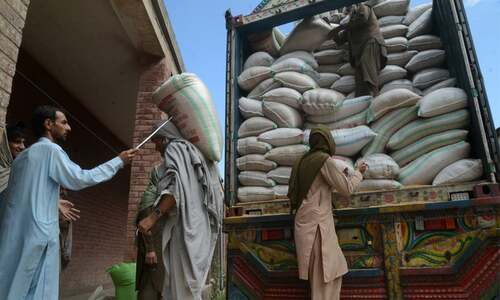ISLAMABAD: Prayer leaders and other religious clerics are an under-used means of pushing action to combat climate change, experts and religious scholars said at a multi-faith meeting on Thursday.
Religious leaders have the moral standing to call on people and businesses to consider the environmental impact of their activities and take a bigger role in reducing their own carbon footprints and finding ways to cope with the growing impacts of climate change, experts said at a multi-faith meeting in Islamabad.
Pakistan Ulema Council's Maulana Tahir Ashrafi said imams [prayer leaders] could have "unprecedented influence" in bringing action on climate change.
But first, he said, "they need training to both understand and communicate the issues accurately in a country hard-hit by climate-related drought, flooding, crop losses and other problems."
"We religious leaders in Pakistan can talk about climate change with people as long as we become knowledgeable about climate change and its other facets," he maintained.
'Power of faith activists must be tapped'
At the recent gathering, which drew scientists, religious scholars and academics, Charles Amjad, an American professor emeritus at the Luther Seminary in Minnesota, said relying only on political and non-governmental organisation leaders to drive climate action was a mistaken approach.
"We must realise that people do listen to religious scholars in mosques, priests in churches, rabbis in synagogues and pundits in Hindu temples in most developing countries, far more than they do to politicians, bureaucrats, media and mayors," he said.
"This power of faith activists must be tapped for addressing climate change," he urged.
Religious leaders might urge people to use energy-efficient appliances, bicycle instead of driving, reduce the amount of water they use or help protect forests, Amjad said.
Such appeals could take the form of religious anecdotes and tales from the lives of prophets and saints, some of whom used resources such as water judiciously and sustainably in their own lives, said Bishop Samuel Azariyah, vice-chairman of the World Council of Religions.
He noted that most religions and scriptures call upon their followers to avoid unsustainable and irresponsible exploitation the earth's resources.
Nonetheless, "humans have used them treacherously, out of greed, for relentless pursuit of economic growth and consumption", he lamented.
'Engaging new voices is key'
Ingrid Naess-Holm, an adviser on climate justice and energy issues at Norwegian Church Aid, said that engaging new types of voices on the need for climate action is key.
"It's really valuable to have new kinds of actors, (particularly) the most influential, like faith leaders, on board in this regard," she told the Thomson Reuters Foundation.
Leaders who speak from the pulpit on climate change, however, must realise they are taking on "a big opportunity and responsibility for themselves", she said ─ and must be prepared to lead by example as well as urging others to act.
Ashrafi said one key to getting religious leaders to speak out on climate change is ensuring they get help to understand the issues in "the simplest possible language".
Letting leaders of different faiths learn what other religious leaders are doing on climate change would also be useful, he said.
To date, he said, imams in Pakistan have rarely been called on to speak out about climate change, something that "reflects ignorance about the unprecedented influence of the religious leaders", he said.











































